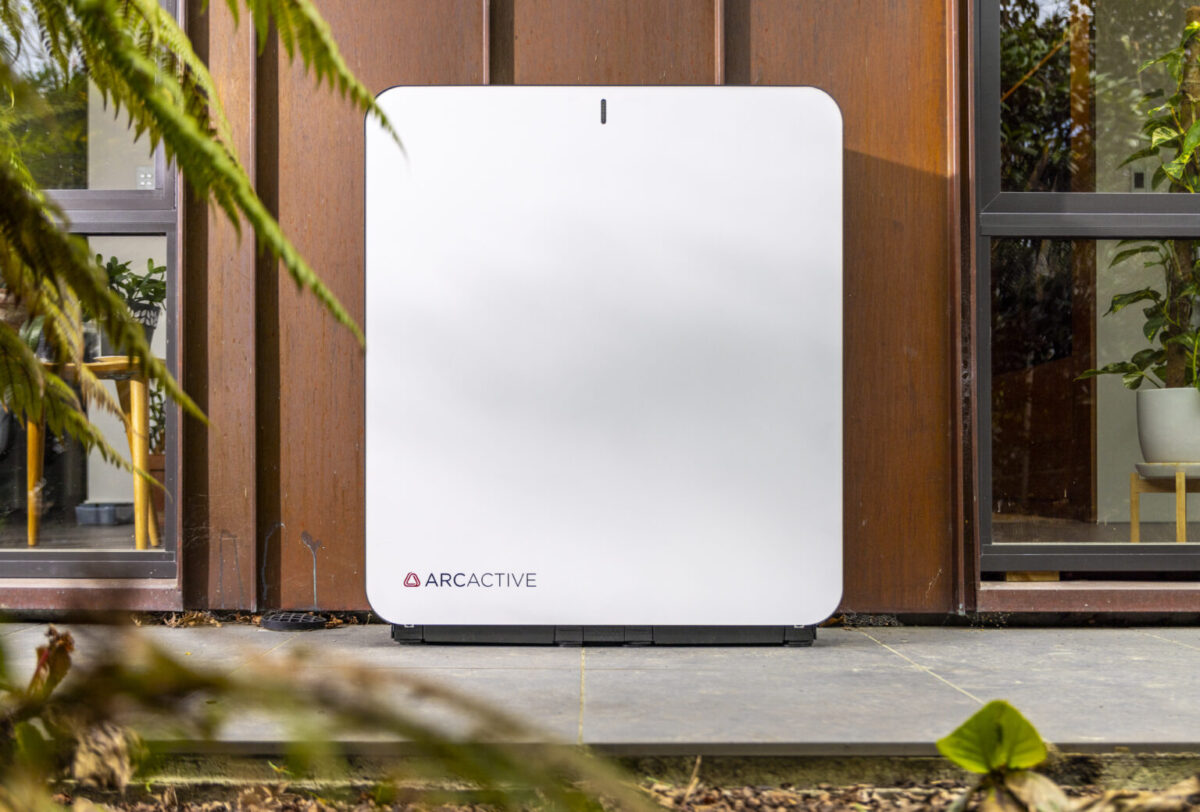ArcActive claims to have delivered one of the biggest leaps forward in lead-acid battery engineering in more than 140 years. It is now targeting Australia for its first major manufacturing facility as it looks to take advantage of the nation's surging residential solar and battery energy storage market.
“This is where the market is, where plenty of the supply chain is, and where the capital is likely to come from – so it makes sense to put production there,” said ArcActive Chief Executive Stuart McKenzie.
Christchurch-headquartered ArcActive said it has developed technology that has allowed it to re-engineer the negative electrode of the lead-acid battery to remove the lead grid and replace it with a non-woven carbon fiber fabric into which the lead active material is inserted.
McKenzie said the carbon fiber plate design gives the firm’s 20 kWh EnergyBank battery energy storage system – which includes an array of eight separate ArcStore batteries – 15 kWh of usable energy with more than 4,000 cycles for half the price of lithium-ion based chemistries. The base system has an inverter rated at 5 kW, but McKenzie said this could run up to 10 kW.
ArcActive said its “new product is set to dramatically disrupt the sector and make energy storage more accessible … with the potential for widespread adoption across residential, commercial and industrial settings.” It added that the EnergyStore battery system – including inverter, battery management system, and cabling – is priced at AUD 4,900 ($3,140), or AUD 6,995 installed.
“This is approximately half of an equivalent sized system, so allows for a five-year payback which should allow wide-scale adoption,” said McKenzie.
Popular content
ArcActive plans to launch a AUD 65 million institutional capital raise in the coming weeks, with the funds to be used to build a production facility in either Queensland or Victoria.
Once the funding round is closed, ArcActive said it expects that it will take about 18 months to get the first production line operational, with the facility set to generate about 70 jobs.
Lithium-ion batteries currently dominate the energy storage market, but ArcActive said its lead-based technology has shown “excellent performance at partial state-of-charge – a key technical requirement for both automotive and energy storage applications.”
McKenzie said lead-acid battery technology also has the advantage of zero fire risk, and a sustainability advantage in that the batteries are “fully recyclable today because the economic cost of recycled lead is known.”
The company said the ArcStore battery that is used in the EnergyBank system will be a general battery system, but storing energy generated by residential solar is seen as its primary market.
This content is protected by copyright and may not be reused. If you want to cooperate with us and would like to reuse some of our content, please contact: editors@pv-magazine.com.



By submitting this form you agree to pv magazine using your data for the purposes of publishing your comment.
Your personal data will only be disclosed or otherwise transmitted to third parties for the purposes of spam filtering or if this is necessary for technical maintenance of the website. Any other transfer to third parties will not take place unless this is justified on the basis of applicable data protection regulations or if pv magazine is legally obliged to do so.
You may revoke this consent at any time with effect for the future, in which case your personal data will be deleted immediately. Otherwise, your data will be deleted if pv magazine has processed your request or the purpose of data storage is fulfilled.
Further information on data privacy can be found in our Data Protection Policy.